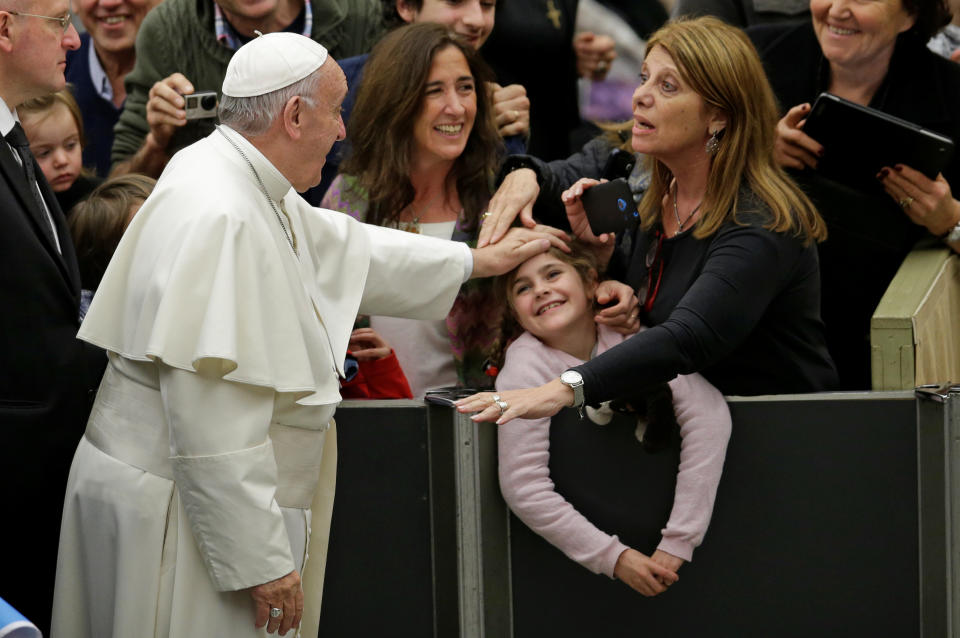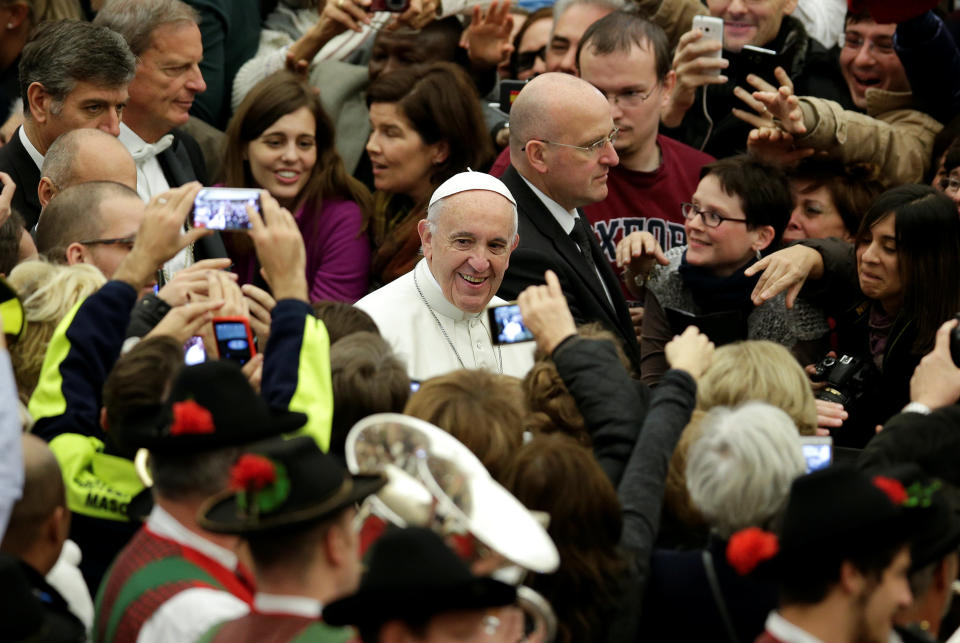Pope warns media over 'sin' of spreading fake news, smearing politicians
By Philip Pullella VATICAN CITY (Reuters) - Media that focus on scandals and spread fake news to smear politicians risk becoming like people who have a morbid fascination with excrement, Pope Francis said in an interview published on Wednesday. Francis told the Belgian Catholic weekly "Tertio" that spreading disinformation was "probably the greatest damage that the media can do" and using communications for this rather than to educate the public amounted to a sin. Using precise psychological terms, he said scandal-mongering media risked falling prey to coprophilia, or arousal from excrement, and consumers of these media risked coprophagia, or eating excrement. The Argentine-born pontiff excused himself for using such terms in order to get his point across while answering a question about the correct use of the media. "I think the media have to be very clear, very transparent, and not fall into - no offence intended - the sickness of coprophilia, that is, always wanting to cover scandals, covering nasty things, even if they are true," he said. "And since people have a tendency towards the sickness of coprophagia, a lot of damage can be done." That section of the interview, all of which was distributed to reporters in an Italian translation of the interview in the pope's native Spanish, contained some of the most blunt language the pontiff has ever used about the media. He also spoke of the danger of using the media to slander political rivals. "The means of communication have their own temptations, they can be tempted by slander, and therefore used to slander people, to smear them, this above all in the world of politics," he said. "They can be used as means of defamation..." "No-one has a right to do this. It is a sin and it is hurtful," he said. He described disinformation as the greatest harm the media can do because "it directs opinion in only one direction and omits the other part of the truth," he said. The pope's comments on disinformation followed widespread debate in the United States over whether fake news on the internet might have swayed voters toward Republican candidate Donald Trump. (Reporting by Philip Pullella; Editing by Tom Heneghan)




